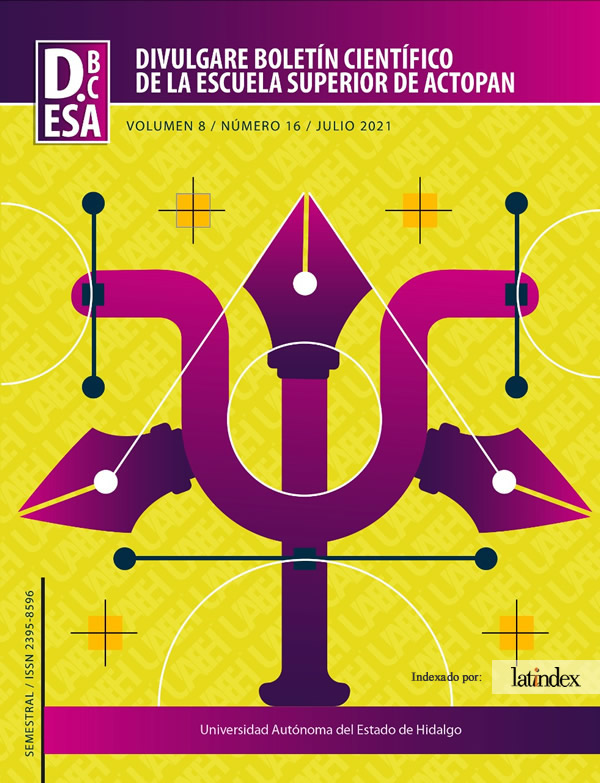Effect of calorie restriction program on working memory and classification in a case study
Abstract
Evidences on the relationship between eating style and the repercussions on brain tissue, its biochemistry, electrical activity, and associated psychological functions have become more important today. In this research, the performance of a 30-year-old participant with obesity and an average consumption of 2,100 calories per day was tracked on memory tests. Statistical analysis showed that the participant had a significant improvement in memory test performance after 3 weeks on a 1,400 calorie diet (calorie restriction). Additionally, she reported feeling more motivated and energetic. It is concluded that caloric restriction may favor cognitive processes due to a probable improvement in the physiological conditions of the hippocampus and frontal cortex. It is proposed to do a long-term follow-up and evaluate emotional functions.
Downloads
References
Bruce-Keller, A. J., Keller, J. N., & Morrison, C. D. (2009). Obesity and vulnerability of the CNS. Biochimica et Biophysica Acta (BBA) - Molecular Basis of Disease, 1792(5), 395–400. https://doi.org/https://doi.org/10.1016/j.bbadis.2008.10.004
Dong, W., Wang, R., Ma, L. N., Xu, B. L., Zhang, J. S., Zhao, Z. W., … Zhang, X. (2015). Autophagy involving age-related cognitive behavior and hippocampus injury is modulated by different caloric intake in mice. International Journal of Clinical and Experimental Medicine, 8(7), 11843–11853.
Duan, W., Lee, J., Guo, Z., & Mattson, M. P. (2001). Dietary restriction stimulates BDNF production in the brain and thereby protects neurons against excitotoxic injury. Journal of Molecular Neuroscience, 16(1), 1–12. https://doi.org/10.1385/JMN:16:1:1
García-Casares, N., Bernal-López, M. R., Roé-Vellvé, N., Gutiérrez-Bedmar, M., Fernández-García, J. C., García-Arnés, J. A., … Gómez-Huelgas, R. (2017). Brain functional connectivity is modified by a hypocaloric mediterranean diet and physical activity in obese women. Nutrients, 9(7). https://doi.org/10.3390/nu9070685
Griesbach, G. S., Hovda, D. A., Molteni, R., Wu, A., & Gomez-Pinilla, F. (2004). Voluntary exercise following traumatic brain injury: brain-derived neurotrophic factor upregulation and recovery of function. Neuroscience, 125(1), 129–139. https://doi.org/https://doi.org/10.1016/j.neuroscience.2004.01.030
Gu, Y., Brickman, A. M., Stern, Y., Habeck, C. G., Razlighi, Q. R., Luchsinger, J. A., … Scarmeas, N. (2015). Mediterranean diet and brain structure in a multiethnic elderly cohort. Neurology, 85(20), 1744–1751. https://doi.org/10.1212/WNL.0000000000002121
Kishi, T, & Sunagawa, K. (2012). Exercise training plus calorie restriction causes synergistic protection against cognitive decline via up-regulation of BDNF in hippocampus of stroke-prone hypertensive rats. In 2012 Annual International Conference of the IEEE Engineering in Medicine and Biology Society (pp. 6764–6767). https://doi.org/10.1109/EMBC.2012.6347547
Kishi, Takuya, Hirooka, Y., Nagayama, T., Isegawa, K., Katsuki, M., Takesue, K., & Sunagawa, K. (2015). Calorie Restriction Improves Cognitive Decline via Up-Regulation of Brain-Derived Neurotrophic Factor. International Heart Journal, 56(1), 110–115. https://doi.org/10.1536/ihj.14-168
Li, L., Wang, Z., & Zuo, Z. (2013). Chronic Intermittent Fasting Improves Cognitive Functions and Brain Structures in Mice. PLOS ONE, 8(6), e66069. Retrieved from https://doi.org/10.1371/journal.pone.0066069
Molteni, R., Barnard, R. J., Ying, Z., Roberts, C. K., & Gómez-Pinilla, F. (2002). A high-fat, refined sugar diet reduces hippocampal brain-derived neurotrophic factor, neuronal plasticity, and learning. Neuroscience, 112(4), 803–814. https://doi.org/https://doi.org/10.1016/S0306-4522(02)00123-9
Mueller, S. T., & Piper, B. J. (2014). The Psychology Experiment Building Language (PEBL) and PEBL Test Battery. Journal of Neuroscience Methods, 222, 250–259. https://doi.org/10.1016/j.jneumeth.2013.10.024
Smith, P. J. (2019). Pathways of Prevention: A Scoping Review of Dietary and Exercise Interventions for Neurocognition. Brain Plasticity, 5(1), 3–38. https://doi.org/10.3233/bpl-190083
van den Berg, E., Kloppenborg, R. P., Kessels, R. P. C., Kappelle, L. J., & Biessels, G. J. (2009). Type 2 diabetes mellitus, hypertension, dyslipidemia and obesity: A systematic comparison of their impact on cognition. Biochimica et Biophysica Acta (BBA) - Molecular Basis of Disease, 1792(5), 470–481. https://doi.org/https://doi.org/10.1016/j.bbadis.2008.09.004











